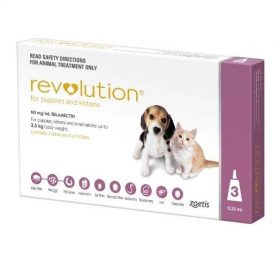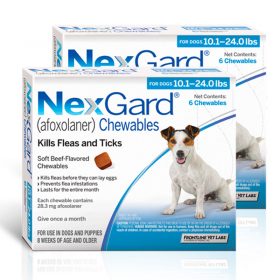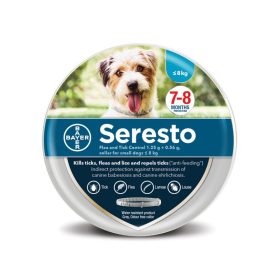How do flea & tick treatments work on dogs and cats?
Fleas and ticks are more than just annoying pests; they can also serve as vectors for a variety of illnesses that can affect both pets and their human companions. To minimize the risk of disease transmission to your furry friend and loved ones, consider using medicinal products such as topical spot-on, protective collars, anti-parasite powders, medicated shampoos, or repellent sprays. These treatments can help keep these troublesome critters at bay. However, it’s crucial to follow the product instructions carefully and consult with your veterinarian if your cat or dog exhibits any negative side effects or adverse reactions to these preventative measures.

Topical Spot-On Flea and Tick Treatments
Topical flea and tick treatments, also known as spot-on solutions or drops, are applied directly to a pet’s skin to offer protection against fleas, ticks, and sometimes additional pests like mosquitoes. Typically applied between the shoulder blades for cats or along the spine for dogs, these treatments are designed to be easy to use and provide continuous coverage—usually for around 30 days, with some products like Bravecto offering up to 12 weeks of protection.
The effectiveness of topicals lies in how they interact with a pet’s natural skin oils. Once applied, the active ingredients quickly spread across the skin’s surface and absorb into the sebaceous (oil) glands. These glands then gradually release the treatment, ensuring consistent, full-body protection against pests. The slow-release mechanism enables the treatment to remain effective even after a pet gets wet or is bathed, making it convenient for both pet owners and active pets.
Topical treatments use potent active ingredients, like fipronil, imidacloprid, (S)-methoprene, and permethrin, that disrupt the nervous system of fleas and ticks, leading to their paralysis and death. Some formulas kill fleas and ticks on contact, while others act once the parasite bites the pet. Many topicals also contain an insect growth regulator (IGR) to interrupt the flea lifecycle. By targeting flea eggs and larvae, the IGR component prevents immature fleas from developing, stopping infestations before they start.
Selecting the correct topical treatment involves considering the pet’s age, weight, species, and lifestyle, as well as the types of pests in your area. Consistently following the recommended dosing schedule is crucial, as these treatments work best when used preventatively. For guidance on the most suitable product for your pet’s needs, consult your veterinarian. With regular, proper use, topical flea and tick treatments provide an efficient barrier, keeping your pets protected, comfortable, and free from harmful parasites.
TIPS:
- Select a flea and tick drop specifically designed for your pet’s species.
- Weigh your pet to make sure you get the right dosage for their size.
- Do not combine doses, apply the medication more frequently than indicated, or mix with other flea and tick products, as this may result in an overdose.
- Avoid bathing your pet 24 hours before or after treatment for optimal effects.
See Our Topical Flea Preventatives:
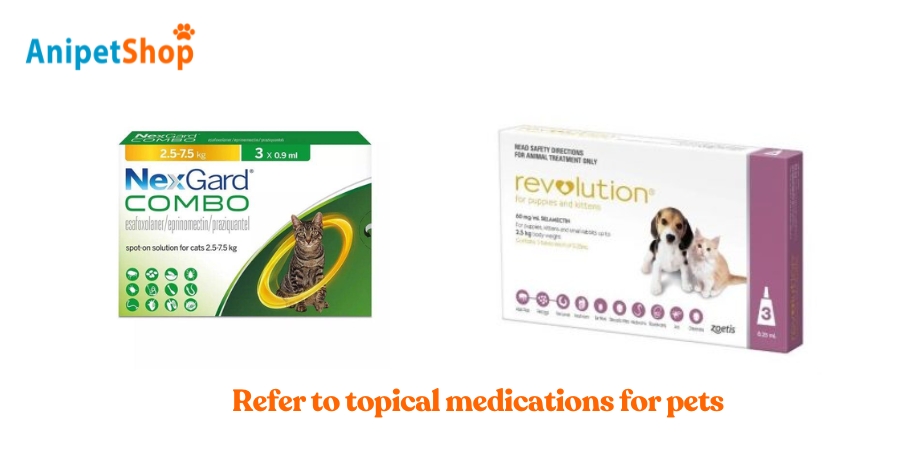
Oral Pills
Oral flea and tick treatments offer a convenient alternative to traditional topical options, working from the inside out to protect your pet. Once ingested, these treatments enter the bloodstream and effectively target parasites that bite or feed on your pet. Unlike topicals that are applied to the skin, oral flea medications are administered by mouth, coming in the form of flavored chewable tablets, soft chews, or pills.
Each type of oral preventative contains different active ingredients and operates in unique ways, but all aim to eliminate fleas and ticks quickly and effectively. Here’s a breakdown of how some popular oral treatments work:
- Nexgard (Afoxolaner): After ingestion, Nexgard is absorbed into your pet’s bloodstream. When a flea or tick bites, it ingests afoxolaner, which targets the parasite’s central nervous system, leading to hyperactivity and ultimately death.
- Bravecto Chews (Fluralaner): Bravecto is absorbed into the tissue fluids beneath your pet’s skin. When a flea or tick feeds, it ingests fluralaner and dies shortly after. Fluralaner is metabolized slowly, providing extended protection for up to 12 weeks.
- Trifexis (Spinosad + Milbemycin Oxime): Trifexis combines spinosad, which rapidly targets fleas, with milbemycin oxime, which protects against heartworm, hookworm, and roundworm. This potent formula kills fleas within 30 minutes of ingestion and achieves 100% effectiveness within 24 hours.
- Other Common Ingredients: Oral flea and tick medications often contain a variety of active ingredients like fluralaner, afoxolaner, spinosad, sarolaner, milbemycin oxime, and praziquantel, each providing targeted protection against different parasites.
Both oral and topical flea medications offer effective ways to protect pets from parasites, though they work in distinct ways. Oral treatments work systemically: once ingested, the medication enters your pet’s bloodstream, killing fleas and ticks when they bite. This internal approach allows oral medications to target parasites as soon as they feed on your pet. In contrast, topical treatments are applied directly to the skin, where they create a protective barrier that kills fleas and ticks on contact, often before they have a chance to bite. For pet owners concerned about mess or potential skin irritation from topicals, oral options can be a convenient alternative.
Maintaining a consistent dosing schedule is crucial for the effectiveness of both types of treatments. Oral flea preventatives are usually given monthly, but some, like Bravecto, provide up to 12 weeks of protection, making it a good choice for those preferring a longer interval between doses. Even during winter months, flea and tick protection is essential, as these parasites can still pose a threat indoors or in warmer regions, especially in areas with milder winters. Consistent, year-round dosing is the best way to ensure your pet remains protected from flea- and tick-borne illnesses.
Choosing the right treatment depends on factors like your pet’s size, lifestyle, and any special health needs. Consulting with a vet can help you determine the most suitable product and dosing schedule, ensuring your pet receives the best, most reliable protection available.
TIPS:
- Choose an oral flea and tick treatment specifically designed for your pet’s species.
- Weigh your pet accurately to ensure you select the correct dosage based on their size.
- Avoid combining different oral flea treatments, giving extra doses, or using other flea and tick products alongside them, as this can risk overdose.
- Make sure your pet takes the full dose without spitting out or partially ingesting the medication for the best results.
See Our Oral Flea Preventatives:
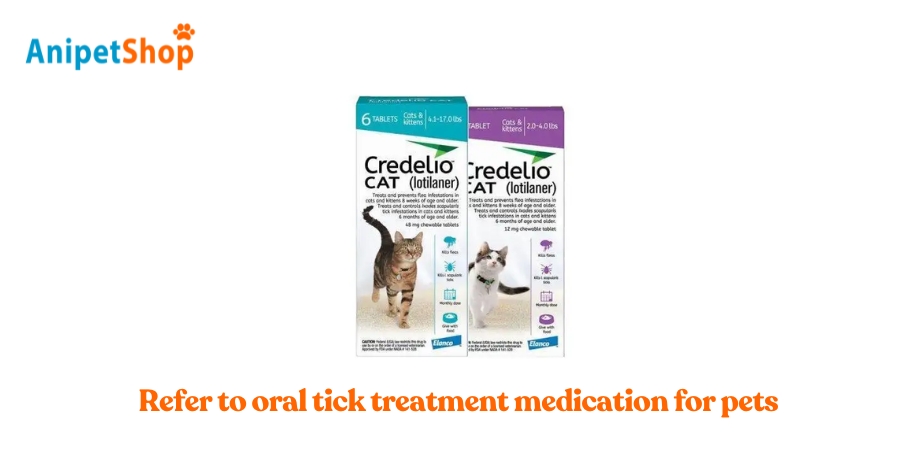
Collars
Flea and tick collars are a popular choice among pet owners due to their convenience and long-lasting efficacy, making them an ideal preventative measure for cats and dogs not currently suffering from an infestation. In fact, a survey by the American Pet Products Association (APPA) found that in 2020, 37% of dog owners and 28% of cat owners used flea and tick collars as a form of parasite prevention.
One of the primary advantages of flea and tick collars is their extended duration of effectiveness, which can last up to 7 or 8 months, as demonstrated by studies conducted by Stanneck et al. (2012) and Brianti et al. (2014). These studies found that collars containing imidacloprid and flumethrin (Seresto®) were highly effective against fleas and ticks on dogs and cats for up to 8 months, with a 99.9% reduction in flea counts and a 100% reduction in tick counts. This prolonged protection allows pet owners to provide their animals with continuous defense against these harmful pests without the need for frequent reapplication. Additionally, flea and tick collars can be worn alongside a pet’s regular collar, making it easy to integrate into their existing routine.
Flea and tick collars work through two main mechanisms: repelling and treating. Repellent collars emit a gas that creates a barrier around the pet, discouraging fleas and ticks from biting. On the other hand, treatment collars contain active ingredients that are gradually released and absorbed into the animal’s sebaceous glands. These medications are then distributed throughout the pet’s skin using their natural oils, killing fleas and ticks upon contact before they have a chance to bite.When selecting a flea and tick collar for your pet, it is crucial to carefully read the packaging to ensure that the product addresses all of your specific concerns.
See Our Collar Preventatives:

Powders and Sprays
Flea and tick treatments in spray and powder form are versatile options that can be applied directly to your pet’s coat and massaged into the fur for full-body protection. These formulations offer more flexibility in terms of application compared to other types of preventative measures. A study by Dryden et al. (2013) found that a spray containing fipronil and permethrin effectively controlled fleas and ticks on dogs for up to 30 days, with a 99.5% reduction in flea counts and a 97.9% reduction in tick counts.
In addition to their use on pets, spray and powder treatments can also be employed in the home environment to protect your pet’s surroundings, including upholstery, carpets, and bedding. This comprehensive approach helps to create a barrier against flea and tick infestations, safeguarding both your pet and your family. According to a survey by the American Pet Products Association (APPA), in 2020, 25% of dog owners and 21% of cat owners used flea and tick sprays or powders as part of their parasite prevention regimen (APPA, 2021).
One of the key advantages of powder and spray treatments is their suitability for cats and dogs of all life stages, from puppies and kittens to adult and senior pets. However, when applying these products, it is crucial to take precautions to protect your pet’s eyes and ears from the active ingredients. By carefully following the manufacturer’s instructions and targeting the application to your pet’s coat, you can minimize the risk of any potential irritation or discomfort.
Check out our guide to treating fleas in your home
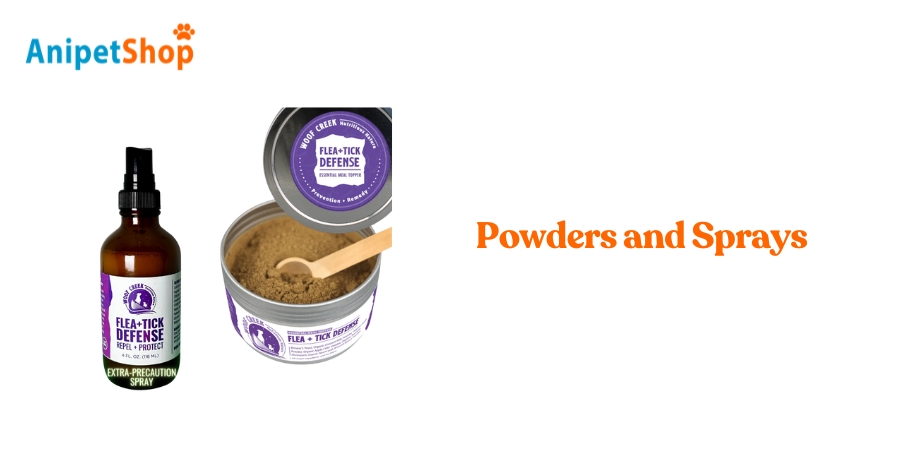
Shampoo
Flea and tick shampoos are designed to eliminate existing infestations on pets through direct contact with the parasites. These medicated shampoos contain active ingredients that target and kill fleas and ticks residing on the animal’s skin and fur. A study by Dryden et al. (2007) found that a shampoo containing pyrethrins and piperonyl butoxide effectively killed 100% of fleas on dogs within 24 hours of application.
To maximize the efficacy of flea and tick shampoos, it is crucial to follow the proper application process. Begin by thoroughly wetting your pet’s coat with water, ensuring that the fur is saturated down to the skin. Next, apply the shampoo and work it into a rich lather, taking care to avoid getting the suds into your pet’s eyes or ears. Massage the lather from head to tail, making sure that the entire coat is covered, including hard-to-reach areas like the underbelly, legs, and tail.
Once the coat is fully lathered, allow the shampoo to sit on your pet’s skin for several minutes, as directed by the product instructions. This extra time allows the active ingredients to penetrate the fur and skin, effectively targeting and killing any fleas and ticks present. After the recommended contact time has elapsed, rinse your pet’s coat thoroughly with clean water until all traces of the shampoo have been removed. Finally, use a towel to dry your pet’s fur, paying special attention to any areas where fleas or ticks may attempt to hide.
While flea and tick shampoos are effective at eliminating existing infestations, they do not typically provide long-lasting protection against future parasite attacks. According to the Companion Animal Parasite Council (CAPC), flea and tick shampoos should be used in conjunction with other preventative measures, such as topical spot-on treatments or collars, to ensure comprehensive protection against these persistent pests (CAPC, 2020).
Flea and tick shampoos
FAQs
How long does it take for flea treatment to work?
The time it takes for flea treatment to work varies based on the type used. Topical treatments begin killing fleas within hours and fully eliminate them in 24-48 hours. Oral treatments provide relief within 30 minutes to a few hours. Flea collars start working immediately but may take days for full protection. Environmental treatments may take days to weeks to reduce flea populations.
How long does it take for fleas to go away after treatment?
After treatment, it typically takes a few hours to several weeks for fleas to completely disappear. Factors like infestation severity and treatment type influence the timeline. Consistent treatment of both pets and their environment is key for effective flea control.
How long do you have to leave your room after flea treatment?
Reentry times after flea treatment vary based on the product used. Follow manufacturer instructions, which can range from a few hours to several days, allowing for proper drying and ventilation before returning to the room.
What happens during a flea treatment?
During a flea treatment, pets are typically treated first with topical or oral medications. Then, environmental areas are addressed using sprays or foggers. Steps involve assessment, preparation, application, and follow-up to ensure effectiveness and safety.
See More:
- How to Get Rid of Fleas in Your Home
- Flea Bites on Dogs: What Are They Like and How to Treat Them?
- Best Flea and Tick Medicines for Dogs Without Vet Prescription
- How quickly does bravecto kill fleas?
References:
- Brianti, E., Falsone, L., Napoli, E., Prudente, C., Gaglio, G., Giannetto, S., & Otranto, D. (2014). Efficacy of a combination of 10% imidacloprid and 4.5% flumethrin (Seresto®) in slow release collars to control ticks and fleas in highly infested cat communities. Parasites & Vectors, 7(1), 327. https://doi.org/10.1186/1756-3305-7-327
- Stanneck, D., Ebbinghaus-Kintscher, U., Schönhense, E., Krüdewagen, E. M., Turberg, A., Leisewitz, A., Jiritschka, W., & Krieger, K. J. (2012). The synergistic action of imidacloprid and flumethrin and their release kinetics from collars applied for ectoparasite control in dogs and cats. Parasites & Vectors, 5(1), 73. https://doi.org/10.1186/1756-3305-5-73
- APPA. (2021). 2021-2022 APPA National Pet Owners Survey. American Pet Products Association.
- Dryden, M. W., Payne, P. A., Smith, V., Heaney, K., & Sun, F. (2013). Efficacy of indoxacarb applied to cats against the adult cat flea, Ctenocephalides felis, flea eggs and adult flea emergence. Parasites & Vectors, 6(1), 126. https://doi.org/10.1186/1756-3305-6-126
- CAPC. (2020). Flea & Tick Control. Companion Animal Parasite Council. https://capcvet.org/guidelines/fleas-and-ticks/
- Dryden, M. W., Payne, P. A., Smith, V., & Settje, T. (2007). Evaluation of the ovicidal activity of lufenuron and spinosad on fleas’ eggs from treated dogs. International Journal of Applied Research in Veterinary Medicine, 5(3), 113-116.
Lily Watson is an author specializing in veterinary care in Australia. With a profound passion for animal welfare and a solid foundation in veterinary science, Lily has dedicated herself to disseminating valuable knowledge and information for both pet owners and professionals in this field.

